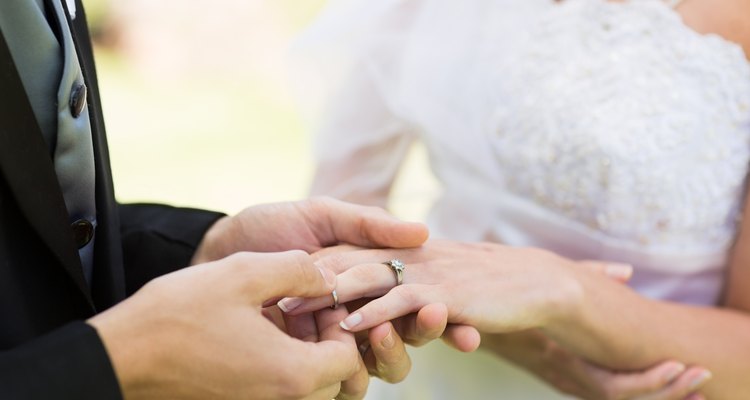
Wavebreakmedia Ltd/Wavebreak Media/Getty Images
Although marriage is a legal contract recognized by government, it's also a religious institution defined by faith denominations. The legal aspect of marriage conveys a variety of privileges, benefits and rights to both partners, while the spiritual aspect only recognizes the union in terms of a religion's beliefs. These two faces of marriage have corresponding ceremonies: civil ceremonies performed by a government official and church weddings performed by a religious officiant.
Legal Differences
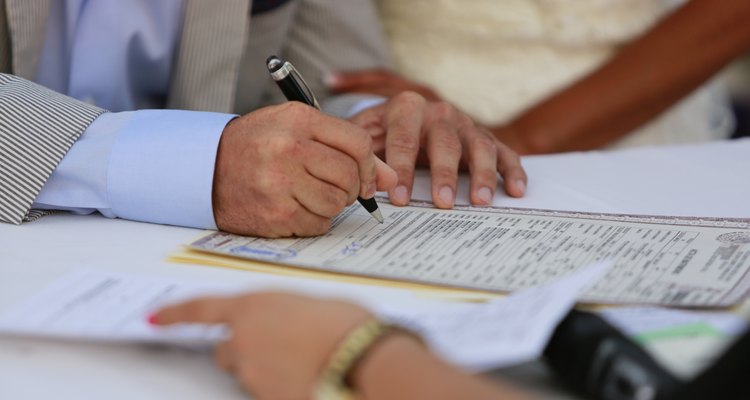
irina88w/iStock/Getty Images
Couples must present a license to get married legally. Their marriage in a civil ceremony then becomes legal when the officiant signs the marriage certificate. The law does not require a license for church marriages because of their sacramental nature. However, without a marriage license, couples wed in a church ceremony aren't legally married even if they do meet the criteria set by their faith. When those reciting vows in a church, synagogue or other holy site present a marriage license, their ceremony becomes both religious and civil, and their marriage gains legal recognition after the officiating clergy signs the marriage certificate.
Commitment Differences
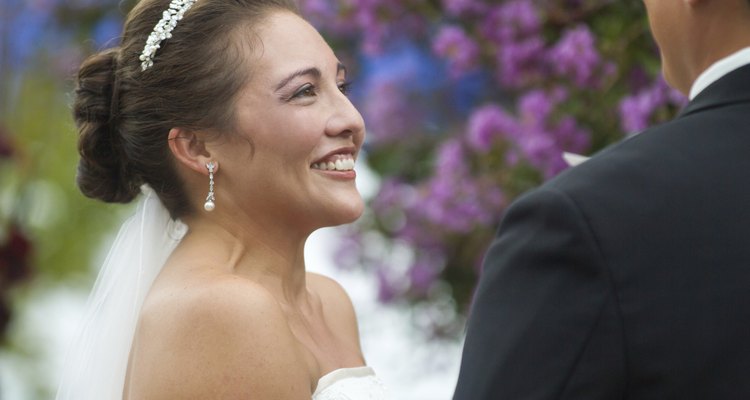
benjaminjk/iStock/Getty Images
Vows remain the heart of a wedding, whether they're said in a civil ceremony or a house of worship. Couples have more flexibility in personalizing their vows when they marry outside of a church. Some religions frown upon any deviation from traditional, standard vows that acknowledge their belief in a Higher Being. Couples marrying in The Episcopal Church, for example, begin their vows with the words, "In the Name of God." Vows recited at civil weddings contain no religious references.
Officiating Differences
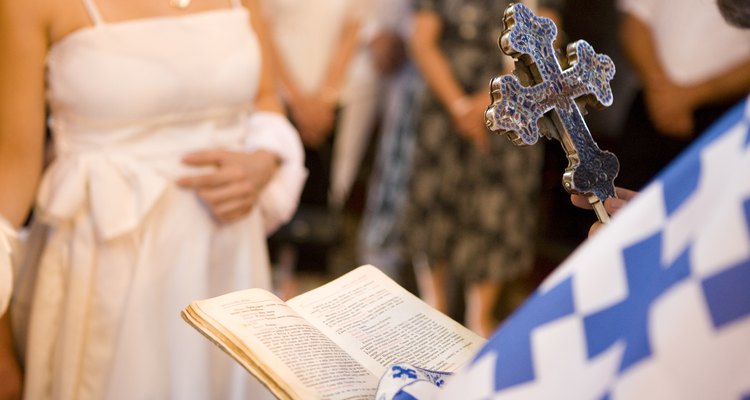
webphotographeer/iStock/Getty Images
The person presiding over a civil wedding ceremony holds a government position authorized by state law to officiate. For example, the Commonwealth of Pennsylvania allows mayors, justices of the peace and judges to marry couples who have obtained a marriage license. On the other hand, faith organizations limit those who can preside over a marriage conducted according to their laws and traditions to a minister, priest, rabbi or other ordained church leader.
Logistical Differences
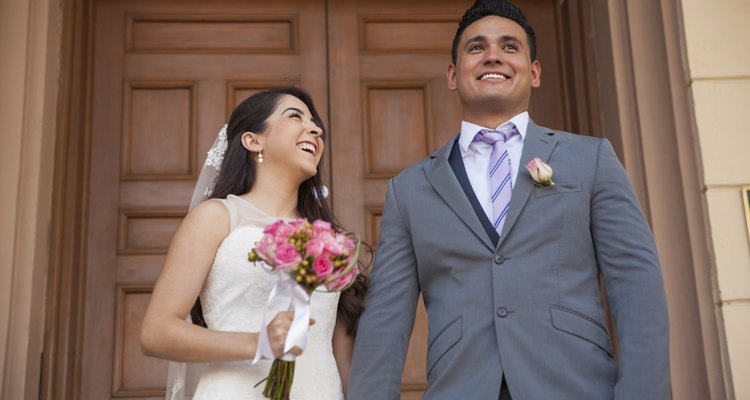
Antonio_Diaz/iStock/Getty Images
Civil weddings take place in a non-religious setting such as a courthouse, resort or family home. They tend to be simpler, less expensive affairs than church weddings, especially when held at a city hall or courthouse. Civil-ceremony couples invest less time and preparation than their church-wedding counterparts and often only invite their witnesses. Lack of traditions such as a ring bearer, flower girl and recessional make civil ceremonies briefer than church weddings or weddings officiated by a member of the clergy in a non-religious setting. Although less formal attire is the norm, brides can wear a wedding dress and grooms can sport a tuxedo instead of a suit and tie for their civil ceremony.
Related Articles

Colorado Law on Officiating a Wedding ...

Christian Wedding Prayers and Blessings

Can a Notary Republic Marry People?

Laws on Who Can Marry Couples in Texas

Can You Have a Wedding Without ...

Who Can Legally Perform Marriages in ...

How to Have a Court House Wedding

How Can I Get Certified to Marry People?

Mandatory Legal Phrases for Wedding Vows

Laws for Performing Marriages in Florida

Georgia Civil Ceremony Information

The History of Marriage Licenses

How to Get a Divorce in Barbados

Ribbon Meanings for a Handfasting ...

How to Address an Invitation to a Pastor

How to Hire a Justice of the Peace ...

The Customs of Filipino Wedding ...

Marine Corps Marriage Regulations

What Is the Proper Way to Get Married ...

The Meaning of a Flower Girl in a ...
References
- Lawyer.com: Rights and Responsibilities of a Married Person
- Marriage Equality USA: Religious vs. Civil Marriage
- Find Law: Kim, Kanye Plan Civil Ceremony in U.S. Before Wedding in France
- Commonwealth of Pennsylvania: Pennsylvania Statutes; Section 1503 – Title 23 Domestic Relations
- Patheos: Theoblogy; There Are Two Marriages
- For Your Marriage: Tips for Planning Your Catholic Wedding
- The Episcopal Church Book of Common Prayer Online: The Celebration and Blessing of a Marriage
- Michigan Association of Mayors: The Civil Marriage Ceremony Handbook for Mayors
- Christ Lutheran Church: Wedding Guide
Writer Bio
Trudy Brunot began writing in 1992. Her work has appeared in "Quarterly," "Pennsylvania Health & You," "Constructor" and the "Tribune-Review" newspaper. Her domestic and international experience includes human resources, advertising, marketing, product and retail management positions. She holds a master's degree in international business administration from the University of South Carolina.
Photo Credits
Wavebreakmedia Ltd/Wavebreak Media/Getty Images